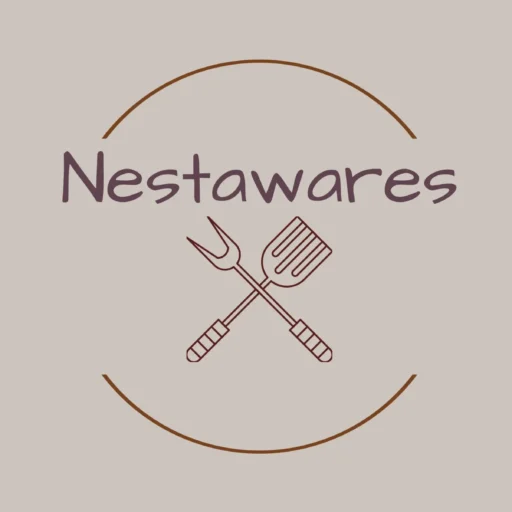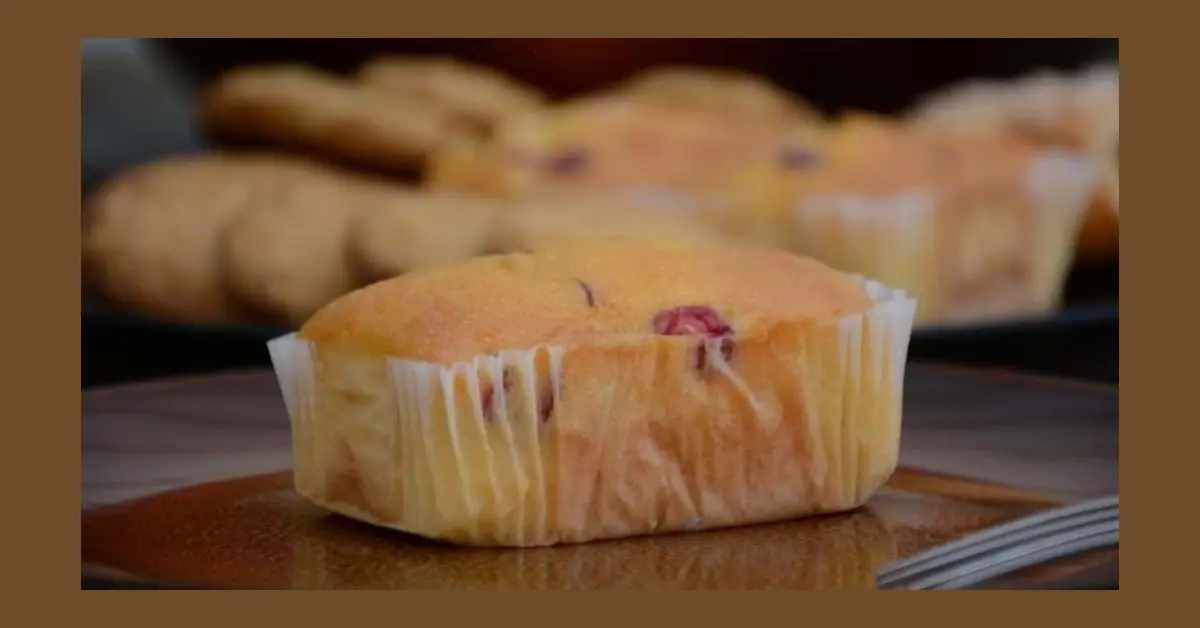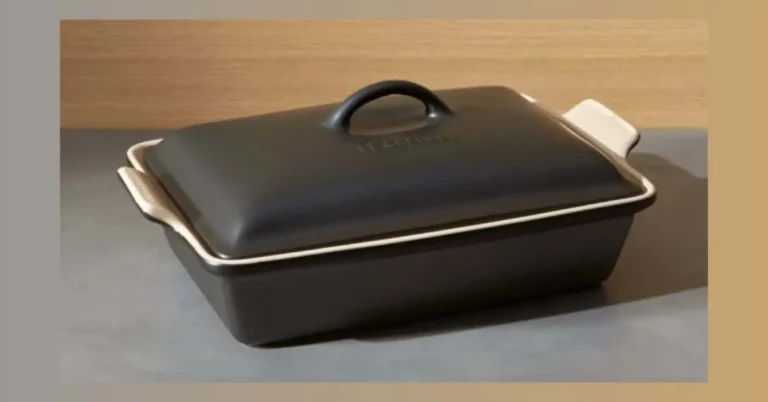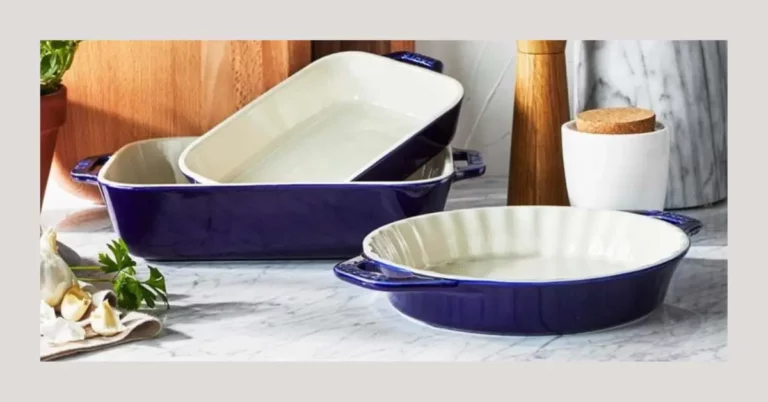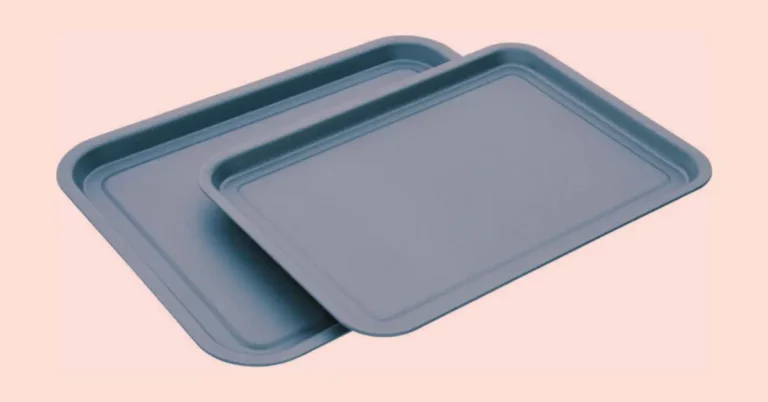Disclosure: As an Amazon associate, I may earn from qualifying purchases
In our previous article on mini loaf pans, we covered the basics of their usage, materials, and sizes. Now, in this continuation, we delve deeper into some of the most frequently asked questions about these versatile baking tools.
Building upon the knowledge we established in the previous article, we’ll explore new tips and techniques for making the most out of your mini pans.
Read on to discover how to take your baking skills to the next level.
Building upon the knowledge we established in the previous article, we’ll explore new tips and techniques for making the most out of your mini pans.
Read on to discover how to take your baking skills to the next level.
Frequently Asked Questions
What size is a mini cake pan?
The size of a mini cake pan can vary depending on the manufacturer, but typically They are around 2 to 4 inches in diameter and about 1 to 2 inches deep.
They are often sold in sets of 6 or 12 and can be made of various materials including metal, silicone, or even paper.
They are commonly used for making individual-sized desserts such as cupcakes, muffins, or mini cheesecakes.
They are often sold in sets of 6 or 12 and can be made of various materials including metal, silicone, or even paper.
They are commonly used for making individual-sized desserts such as cupcakes, muffins, or mini cheesecakes.
How many slices in a mini loaf?
The number of slices in a mini loaf can vary depending on the size of the loaf and how thickly it is sliced. Generally, a mini loaf is smaller than a regular loaf and may be sliced into 4 to 6 servings, although it can be sliced thinner or thicker as desired.
The exact number of slices will depend on the recipe used and the personal preference of the baker.
The exact number of slices will depend on the recipe used and the personal preference of the baker.
What is a mini loaf tin?
A mini loaf tin, also known as a mini loaf pan or mini bread pan, is a baking pan used for making smaller-sized loaves of bread, cakes, or other baked goods.
It typically has several compartments for baking individual mini loaves, with each compartment measuring around 2 to 3 inches wide and 4 to 5 inches long.
Mini loaf tins are commonly used for baking smaller portions of bread or cakes, or for making individual servings of baked goods for events like parties or bake sales.
They come in various materials like metal, silicone, or ceramic, and can be found in different shapes and sizes.
It typically has several compartments for baking individual mini loaves, with each compartment measuring around 2 to 3 inches wide and 4 to 5 inches long.
Mini loaf tins are commonly used for baking smaller portions of bread or cakes, or for making individual servings of baked goods for events like parties or bake sales.
They come in various materials like metal, silicone, or ceramic, and can be found in different shapes and sizes.
What size is a 2lb bread pan?
A 2lb bread pan typically has dimensions of about 9 x 5 inches (23 x 13 cm) and a depth of 2 1/2 to 3 inches (6-7.5 cm). The exact size may vary slightly depending on the manufacturer.
How big is a 3 pound loaf pan?
A 3-pound loaf pan is typically around 10 x 5 inches (25 x 13 cm) in size and has a depth of about 3 inches (7.5 cm). The exact dimensions may vary slightly depending on the manufacturer.
What size is a one pound bread pan?
A one pound bread pan is typically 8 1/2 x 4 1/2 inches (21.6 x 11.4 cm) in size and has a depth of about 2 1/2 inches (6.4 cm). The exact dimensions may vary slightly depending on the manufacturer.
Do they make small loaves of bread?
Yes, there are many different sizes of bread loaf pans, including small ones for making mini loaves or single-serving bread.
These are often used for gift giving, portion control, or for trying out a new recipe without committing to a full-sized loaf.
These are often used for gift giving, portion control, or for trying out a new recipe without committing to a full-sized loaf.
What is tiny bread called?
There isn’t a specific type of bread that is commonly referred to as “tiny bread.” However, small loaves of bread can be called mini loaves, petite loaves, or small bread loaves.
Is it cheaper to make bread from scratch?
Yes, making bread from scratch can be cheaper than buying pre-made bread, especially if you regularly consume bread.
While the initial cost of purchasing ingredients and equipment may be higher, making bread at home allows you to control the quality of the ingredients and the amount you make, which can help save money in the long run.
Additionally, homemade bread can be customized to fit personal preferences, which can save money on buying specialty breads.
While the initial cost of purchasing ingredients and equipment may be higher, making bread at home allows you to control the quality of the ingredients and the amount you make, which can help save money in the long run.
Additionally, homemade bread can be customized to fit personal preferences, which can save money on buying specialty breads.
How did they bake bread in Bible times?
In Bible times, bread was baked in outdoor ovens made of clay or stone. These ovens were heated with wood or charcoal until they reached the desired temperature for baking.
The dough was placed inside the oven on flat rocks or directly on the oven floor, and the bread was baked until it was done. Bakers would often brush the bread with olive oil or sprinkle it with herbs for added flavor.
The process of baking bread in Bible times was time-consuming and required skill and experience.
The dough was placed inside the oven on flat rocks or directly on the oven floor, and the bread was baked until it was done. Bakers would often brush the bread with olive oil or sprinkle it with herbs for added flavor.
The process of baking bread in Bible times was time-consuming and required skill and experience.
What are the best mini loaf pans for baking?
Several options for mini loaf pans available in the market, and the best one for you may depend on your specific needs and preferences. Some highly-rated options include:
- Wilton Perfect Results Premium Non-Stick Mini Loaf Pan – This pan has a durable non-stick coating that makes it easy to release your baked goods and clean up after use. It is made of heavy-duty steel that distributes heat evenly for consistent baking results.
The pan has dimensions of 8.5 x 4.5 x 2.5 inches, and each cavity holds about 1 cup of batter. - USA Pan Bakeware Aluminized Steel Mini Loaf Pan – This pan is made of aluminized steel that allows for even heat distribution and consistent baking results. It has a non-stick coating for easy release and is also corrosion-resistant.
The pan has dimensions of 5.75 x 3.125 x 2.25 inches, and each cavity holds about 0.69 cups of batter. - Chicago Metallic Commercial II Non-Stick Mini Loaf Pan – This pan has a heavy-duty construction that is designed to withstand frequent use in a commercial kitchen. It has a non-stick coating for easy release and is also dishwasher safe for easy cleanup.
The pan has dimensions of 8.5 x 4.5 x 2.75 inches, and each cavity holds about 1 cup of batter. - Rachael Ray Oven Lovin’ Non-Stick Bakeware 3-Piece Mini Loaf Pan Set – This set includes three mini baking pans made of heavy-gauge steel that heats evenly and resists warping. The pans have a non-stick coating for easy release and are also dishwasher safe for easy cleanup.
Each pan has dimensions of 5.5 x 2.5 x 2.25 inches, and each cavity holds about 0.6 cups of batter. - Nordic Ware Natural Aluminum Commercial Mini Loaf Pans – These pans are made of natural aluminum that heats evenly and quickly for consistent baking results. They have a non-stick coating for easy release and are also rust-resistant.
The pans have dimensions of 8.38 x 3.63 x 2.5 inches, and each cavity holds about 1.5 cups of batter.
What is the difference between silicone and metal mini muffin tins?
The main difference between silicone and metal mini muffin tins is the material they are made of. Silicone mini muffin tins are made of a flexible, non-stick material that makes it easy to remove baked goods without the need for greasing or flouring.
They are also dishwasher safe and can withstand a wide range of temperatures, making them a convenient choice for baking.
On the other hand, metal mini muffin tins are made of aluminum or steel and can be either non-stick or not. They are generally more durable than silicone and can be used for a longer period of time, but require greasing or flouring to prevent sticking.
However, metal mini muffin tins are not dishwasher safe and may require hand-washing.
In terms of baking results, both types of mini muffin tins can produce great baked goods, but some people prefer the crispy edges that metal pans can produce. Ultimately, the choice between silicone and metal mini muffin tins will depend on preferences and baking needs.
They are also dishwasher safe and can withstand a wide range of temperatures, making them a convenient choice for baking.
On the other hand, metal mini muffin tins are made of aluminum or steel and can be either non-stick or not. They are generally more durable than silicone and can be used for a longer period of time, but require greasing or flouring to prevent sticking.
However, metal mini muffin tins are not dishwasher safe and may require hand-washing.
In terms of baking results, both types of mini muffin tins can produce great baked goods, but some people prefer the crispy edges that metal pans can produce. Ultimately, the choice between silicone and metal mini muffin tins will depend on preferences and baking needs.
What is a Pullman loaf pan?
A Pullman loaf pan, also known as a Pullman bread pan or a pain de mie pan, is a type of bread baking pan that produces a rectangular-shaped loaf with a square top and bottom.
The distinguishing feature of a Pullman loaf pan is its lid, which slides onto the top of the pan and helps the bread to rise straight up instead of expanding outward.
The result is a tall, even, and finely-crumbed loaf that is commonly used for making sandwiches or toasting.
Pullman loaf pans come in different sizes, ranging from small to large, and are typically made of metal or aluminum.
The distinguishing feature of a Pullman loaf pan is its lid, which slides onto the top of the pan and helps the bread to rise straight up instead of expanding outward.
The result is a tall, even, and finely-crumbed loaf that is commonly used for making sandwiches or toasting.
Pullman loaf pans come in different sizes, ranging from small to large, and are typically made of metal or aluminum.
